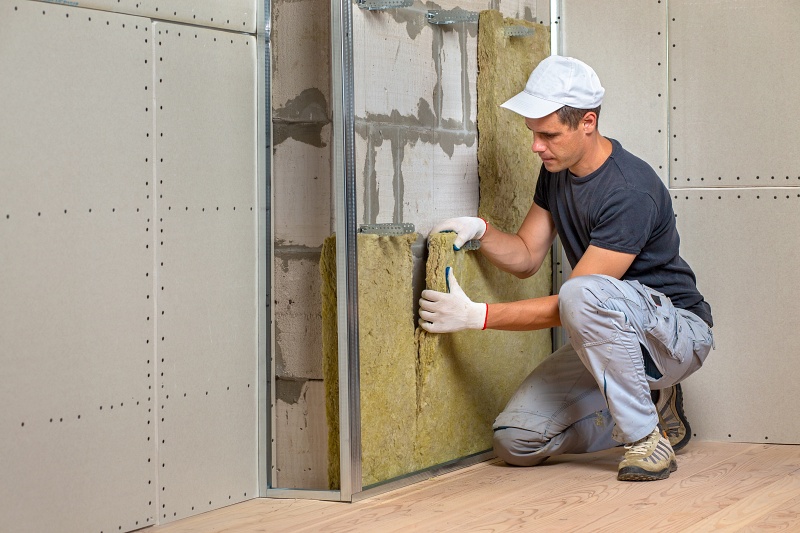Understanding the Basics
Insulation is an essential component in buildings that helps regulate indoor temperatures and reduce energy consumption. It refers to the materials or techniques used to prevent the transfer of heat, cold, or sound between different areas of a structure. Proper insulation ensures that the interior remains comfortable, regardless of the weather conditions outside.
There are several types of insulation available, each with its own set of characteristics and benefits. The most common types include fiberglass, cellulose, and rockwool insulation. Rockwool insulation, also known as mineral wool or stone wool, is made from natural minerals like basalt and diabase. It is created by spinning or blowing molten rock into fibers, which are then formed into batts, boards, or loose-fill material. Rockwool insulation is known for its excellent fire resistance and sound absorption properties, making it a popular choice for both residential and commercial buildings.
What is Rockwool Insulation?
Rockwool insulation, also known as mineral wool insulation, is a type of thermal insulation material that is widely used in buildings for its excellent thermal and acoustic properties. It is made from a blend of natural minerals, primarily basalt or diabase rock, which are melted down and spun into fine fibers. These fibers are then compressed into various forms such as batts, rolls, or boards, making it easy to install in walls, floors, and ceilings.
One of the key characteristics of rockwool insulation is its ability to effectively trap and retain heat. This is due to the unique structure of the fibers, which create tiny air pockets that act as barriers against heat transfer. As a result, buildings that are insulated with rockwool experience reduced heat loss during colder months and improved thermal efficiency throughout the year. Additionally, rockwool insulation also offers excellent sound absorption qualities, making it a popular choice for improving acoustic performance in residential and commercial applications.

How Does Rockwool Insulation Work?
Rockwool insulation, also known as stone wool insulation, works by utilizing the unique properties of its composition. Made from volcanic rock and minerals, rockwool insulation is created by melting the rock at high temperatures and then spinning it into dense fibers. These fibers are then bound together to form a mat-like material that is highly effective in trapping air and resisting heat transfer.
The key to how rockwool insulation works lies in its structure and ability to retain heat. The dense fibers of rockwool trap pockets of air between them, creating an effective barrier against the movement of heat. This trapped air acts as a barrier, preventing heat from escaping through the material. Additionally, the high melting point of rockwool allows it to withstand high temperatures, making it suitable for use in applications where fire resistance is crucial. Overall, rockwool insulation provides efficient thermal insulation and contributes to creating a more comfortable and energy-efficient environment in buildings.
Benefits of Rockwool Insulation
Rockwool insulation offers several notable benefits for homeowners and building occupants alike. Firstly, this type of insulation is highly effective at regulating temperature and moisture levels. It acts as a barrier against heat transfer, helping to keep indoor spaces cooler in the summer and warmer in the winter. In addition, rockwool insulation has excellent soundproofing properties, reducing noise transmission from both outside and within the building. This can greatly enhance the overall comfort and tranquility of living or working spaces.
Another advantage of rockwool insulation is its fire resistance. Made from naturally fire-resistant materials, it can withstand high temperatures and inhibit the spread of flames in the event of a fire. This characteristic not only provides a greater level of safety for occupants, but it can also help to reduce insurance premiums for homeowners and building owners. Moreover, rockwool insulation is a durable and long-lasting solution. It does not degrade over time, ensuring its effectiveness for the lifespan of the building. This means that once installed, there should be no need for frequent replacements or costly maintenance, making it a cost-effective choice in the long run.
Enhancing Energy Efficiency in Buildings
Energy efficiency is a critical consideration when it comes to building design and construction. With the rising costs of energy and the increasing concern for environmental sustainability, finding ways to enhance energy efficiency in buildings has become important. One effective solution is incorporating insulation materials, such as rockwool insulation.
Rockwool insulation is a type of mineral wool insulation made from natural volcanic rock, usually basalt or diabase. It is known for its excellent thermal insulating properties, making it an ideal choice for enhancing energy efficiency in buildings. By installing rockwool insulation in walls, roofs, and floors, buildings can significantly reduce heat transfer, thereby reducing the need for excessive energy consumption for heating and cooling purposes. Additionally, rockwool insulation also provides excellent soundproofing properties, contributing to a more comfortable and uninterrupted indoor environment.
